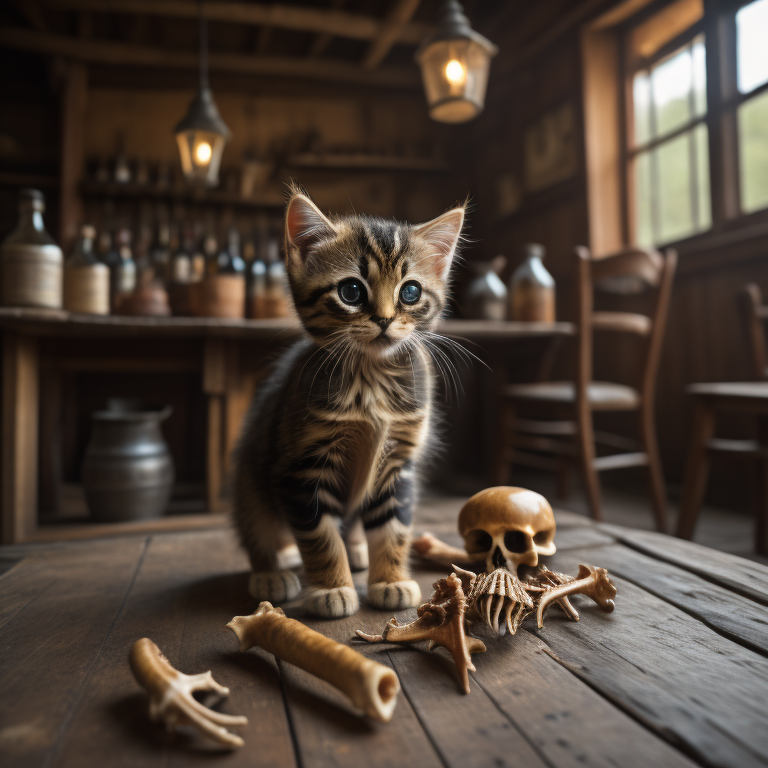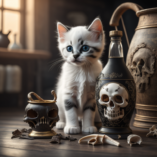Rum Drinking Stories Too Incredible To Be Fake!
The following stories are real!

1. Admiral Edward Russell’s 17th-Century Throwdown
Think you can drink like a sailor? Maybe you should take a moment to reflect on what that truly means.
The record for history’s largest cocktail belongs to British Lord Admiral Edward Russell. In 1694, he threw an officer’s party that employed a garden’s fountain as the punch bowl.
The concoction? A mixture that included 250 gallons of brandy, 125 gallons of Malaga wine, 1,400 pounds of sugar, 2,500 lemons, 20 gallons of lime juice, and 5 pounds of nutmeg.
A series of bartenders actually paddled around in a small wooden canoe, filling up guests’ cups. Not only that, but they had to work in 15-minute shifts to avoid being overcome by the fumes and falling overboard.
The party continued nonstop for a full week, pausing only briefly during rainstorms to erect a silk canopy over the punch to keep it from getting watered down. In fact, the festivities didn’t end until the fountain had been drunk completely dry.
2. The London Brew-nami of 1814
The Industrial Revolution wasn’t all steam engines and textile mills. Beer production increased exponentially, as well. Fortunately, the good people of England were up to the challenge and drained kegs as fast as they were made. Brewery owners became known as “beer barons,” and they spent their newfound wealth in an age-old manner — by trying to party more than the next guy.
Case in point: In 1814, Meux’s Horse Shoe Brewery in London constructed a brewing vat that was 22 feet tall and 60 feet in diameter, with an interior big enough to seat 200 for dinner — which is exactly how its completion was celebrated. (Why 200? Because a rival had built a vat that seated 100, of course.)
After the dinner, the vat was filled to its 4,000-barrel capacity. Pretty impressive, given the grand scale of the project, but pretty unfortunate given that they overlooked a faulty supporting hoop. Yup, the vat ruptured, causing other vats to break, and the resulting commotion was heard up to 5 miles away.
A wall of 1.3 million gallons of dark beer washed down the street, caving in two buildings and killing nine people by means of “drowning, injury, poisoning by the porter fumes, or drunkenness.”
The story gets even more unbelievable, though. Rescue attempts were blocked and delayed by the thousands who flocked to the area to drink directly off the road. And when survivors were finally brought to the hospital, the other patients became convinced from the smell that the hospital was serving beer to every ward except theirs. A riot broke out, and even more people were left injured.
Sadly, this incident was not deemed tragic enough at the time to merit an annual memorial service and/or reenactment.
3. New York State of Mind: The Dutch Ingratiate Themselves to the Natives
In 1609, the Dutch sent English explorer Henry Hudson westward for a third attempt at finding the fabled Northeast Passage. A near mutiny forced him southward, and upon reaching land, he encountered members of the Delaware Indian tribe.
To foster good relations, Hudson shared his brandy with the tribal chief, who soon passed out. But upon waking up the next day, he asked Hudson to pour some more for the rest of his tribe. From then on, the Indians referred to the island as Manahachtanienk — literally, “The High Island.”
And not “high” as in “tall;” high as in “the place where we got blotto.” Most people would agree that Manhattan has stayed true to the spirit of its name ever since.
4. The D.U.I. That Roused a Nation: Paul Revere’s Medford Pre-Party
Turns out, Paul Revere’s famous ride didn’t start out as a hootin’ hollerin’ wake-up-the-villagers sort of trip. According to historian Charles Taussig, Revere embarked on the stealth mission from Charlestown to Lexington in order to warn Sam Adams (the beer guy) and John Hancock (the big signature guy) that the British were coming. But by chance, his route took him through Medford—the rum capital of America. At the time, rum was colonial America’s number one commercial industry. So naturally, Revere stopped in for a brief rest at the house of Captain Isaac Hall, the leader of the local Minutemen and distiller of Old Medford Rum.
By the time Revere saddled up again, he’d sampled his fair share of Captain Hall’s hospitality and “he who came a silent horseman, departed a virile and vociferous crusader, with a cry of defiance and not of fear.” Not surprisingly, Revere was “pulled over” by the authorities (Redcoats) and detained for an hour before being released. So, it was actually Revere’s drunken caterwauling that roused Adams and Hancock at about 4:30 in the morning, only half an hour before fighting broke out on Lexington Green. Unfortunately, history has no record of Revere’s reaction when he awoke the next day (presumably nursing a hangover) and was informed of what he’d done.
5. Indian Elephants Raid the Liquor Cabinet
No wonder they don’t sell beer at the circus. Apparently, elephants like to get wasted. In fact, an outpost of the Indian army in the jungle region of Bagdogra has been under attack ever since a local herd of elephants raided the base in search of food and discovered the soldiers’ entire winter rations of rum.
Since then, the pachyderms have regularly raided the base for a drink and have smashed down all defenses put up by the army, including electrified fences and firewalls.
According to The Daily Telegraph, “An officer recently posted there explained that the elephants broke the rum bottles by cleverly curling their trunks around the bottom. Then they empty the contents down their throats. They soon got drunk, he said, and swayed around. They enjoy themselves and then return to the jungle.”
This is by no means a singular incident, though. The animal kingdom is well-known for its ability to identify fruit that’s begun to ferment. Anthropologists even believe this is how early man discovered alcohol — by observing the strange behavior of animals on a fruit bender.
